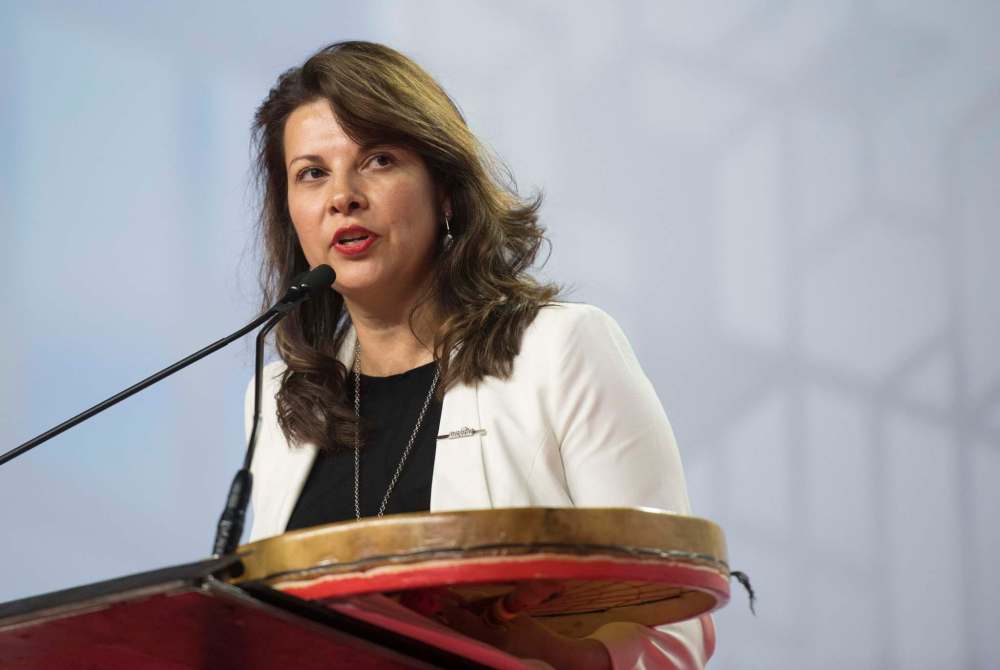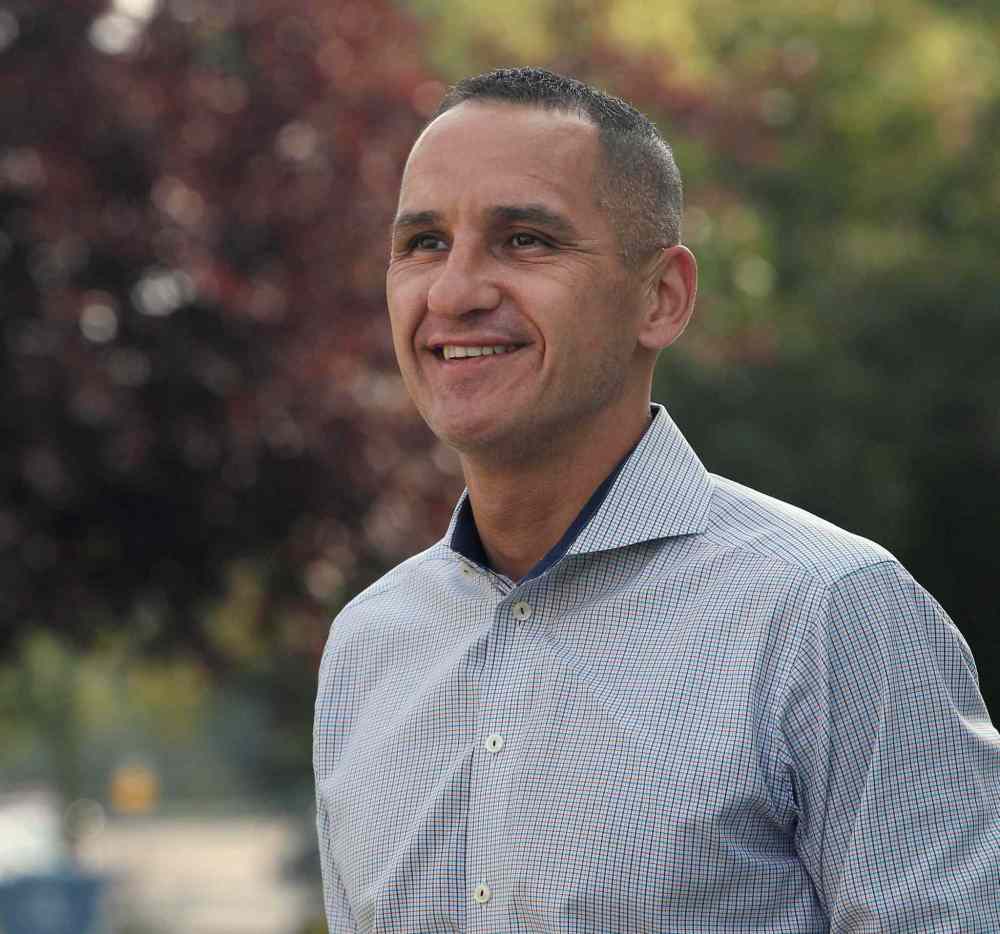Indigenous candidates must strike tricky balance between role and responsibilities
Advertisement
Read this article for free:
or
Already have an account? Log in here »
To continue reading, please subscribe:
Monthly Digital Subscription
$0 for the first 4 weeks*
- Enjoy unlimited reading on winnipegfreepress.com
- Read the E-Edition, our digital replica newspaper
- Access News Break, our award-winning app
- Play interactive puzzles
*No charge for 4 weeks then price increases to the regular rate of $19.00 plus GST every four weeks. Offer available to new and qualified returning subscribers only. Cancel any time.
Monthly Digital Subscription
$4.75/week*
- Enjoy unlimited reading on winnipegfreepress.com
- Read the E-Edition, our digital replica newspaper
- Access News Break, our award-winning app
- Play interactive puzzles
*Billed as $19 plus GST every four weeks. Cancel any time.
To continue reading, please subscribe:
Add Free Press access to your Brandon Sun subscription for only an additional
$1 for the first 4 weeks*
*Your next subscription payment will increase by $1.00 and you will be charged $16.99 plus GST for four weeks. After four weeks, your payment will increase to $23.99 plus GST every four weeks.
Read unlimited articles for free today:
or
Already have an account? Log in here »
Hey there, time traveller!
This article was published 01/10/2019 (2225 days ago), so information in it may no longer be current.
On Monday, Rebecca Chartrand was walking around the Manitoba legislature looking for the Free Press offices. The former federal Liberal candidate in the riding of Churchill—Keewatinook Aski was to be a guest on an all-Indigenous, election-themed episode of its Not For Attribution podcast.
It was also Orange Shirt Day — a day intended to honour residential school survivors and the impact of the schools on Canadian society. Chartrand was wearing an orange shirt.
Lost, she knocked on a door.

“You must be looking for the NDP,” a political staffer said, looking at her shirt. “They’re down the hall.”
In political circles, people are far more interested in what party you belong to, which leader you support, and what side of the oil pipeline issue you are on, than you being a member of an Indigenous nation participating in a Canadian election.
It’s the latter that matters to most Indigenous peoples.
“When I ran for office (in 2015), I wanted people to know I am Anishinaabe first, and a Liberal and Canadian second,” Chartrand said. “I am committed to my responsibilities as an Anishinaabe and I would have brought that to my role as an MP.”
Former federal NDP candidate Kevin Chief — also a former Manitoba MLA and cabinet minister — was also a guest on Not For Attribution. He said being a federal election candidate and Indigenous means you have a “double” responsibility: to advocate for Indigenous peoples while negotiating a system in which Indigenous peoples have been historically marginalized and oppressed.
“It’s a tricky balance,” Chief said, “because sometimes you have to be a part of decisions you radically disagree with.”
For Chief, change isn’t just in the final legislation or decision but in the building of relationships — with constituents, cabinet members, and even opposition parties.
“For things to change for Indigenous peoples, and in fact all peoples, we have to reach across political lines,” Chief said. “The challenges are too deep.”
It may be hard to imagine in today’s political world of rancour and hate, but commitments to community and relationships may be the antidote to the increasing polarization in Canadian politics.
Indigenous politics are not Canadian politics. For the most part, Indigenous peoples get involved in Canadian politics to help Indigenous communities, others, and even non-humans.
In much of Indigenous life, from ceremonies to songs and stories, principles are based in relationship-building and gift-giving. Leadership is also shared. The job of leaders is to never to live in excess, but be an example of sharing and kindness.
“If we are going to be involved in Canadian politics, we have to represent ourselves and be true to our values,” Chartrand said, describing herself as an Indigenous “sovereigntist.”
“In all political spaces, we have to address the issues that our communities are plagued with.”
Seeing an Indigenous person navigate the tricky balance of a political party helps Indigenous youth navigate the roles they play in Canadian politics, too. In this interest, Not For Attribution invited three first-time Indigenous voters to speak: Shay-Ann Jolicoeur, Raedan Brichlin and Carter Graveline.

As part of the largest and fastest-growing voting demographic in Manitoba, the youth were asked what made them want to participate when, historically, many Indigenous peoples have not.
The first thing they spoke about was which party had Indigenous candidates and Indigenous-centred policies in their platforms. Then came issues such as the environment, child welfare, education, and safety.
Jolicoeur said the most pivotal issue for her is the 2018 recognition of the Métis as self-governing peoples by the federal government, which has led to agreements and inclusion in the Recognition and Implementation of Indigenous Rights Framework. “That was so big for us,” she said.
For Brichlin, he wants to see Indigenous communities be offered a chance to succeed: “I just want to see work be done in communities up North and people be helped with their health issues.”
Graveline is interested in any party engaged in water rights and LGBTTQ* issues: “I just want to know who we can trust when we vote. We need to establish that trust before anything else.”
For all three new voters, seeing Indigenous peoples from their communities run for parties is an essential part of building trust with Canadian democracy. To them, it likely means more “hard conversations” about what it means when Indigenous peoples are a meaningful part of society.
Still, Canadian politics is a divisive space full of prime ministers who dress in blackface and opposition leaders who frame Indigenous land protectors as terrorists.
In a world in which Indigenous peoples are still viewed as lobby groups and hindrances to pipelines and profit, Canada has a long way to go before it can even fathom what it means to have Indigenous values and principles in governments.
So, until this time, we will continue to walk into legislatures and Parliament, and bring our commitments to our communities with every step.
We will wear our Indigeneity proudly, even if it’s not recognized.
niigaan.sinclair@freepress.mb.ca

Niigaan Sinclair is Anishinaabe and is a columnist at the Winnipeg Free Press.
Our newsroom depends on a growing audience of readers to power our journalism. If you are not a paid reader, please consider becoming a subscriber.
Our newsroom depends on its audience of readers to power our journalism. Thank you for your support.
History
Updated on Tuesday, October 1, 2019 7:50 PM CDT: Adds photo
Updated on Wednesday, October 2, 2019 5:22 PM CDT: Adds podcast.











